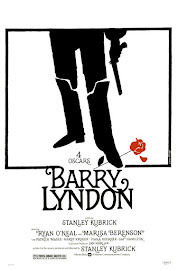Fifteen Dogs (Written by André Alexis)/2015
 This is a gem of a book by Toronto based writer André Alexis. One day the gods Apollo and Hermes have a bet: what if dogs had the intelligence of humans? Will they be happier? The two wage a bet for a year of servitude on whether any of them would die happy.
This is a gem of a book by Toronto based writer André Alexis. One day the gods Apollo and Hermes have a bet: what if dogs had the intelligence of humans? Will they be happier? The two wage a bet for a year of servitude on whether any of them would die happy.
 This is a gem of a book by Toronto based writer André Alexis. One day the gods Apollo and Hermes have a bet: what if dogs had the intelligence of humans? Will they be happier? The two wage a bet for a year of servitude on whether any of them would die happy.
This is a gem of a book by Toronto based writer André Alexis. One day the gods Apollo and Hermes have a bet: what if dogs had the intelligence of humans? Will they be happier? The two wage a bet for a year of servitude on whether any of them would die happy.
What follows is both a sweet and hilarious account of fifteen dogs building a small civilisation. Initially, from my anthropocentric perspective, the novel seemed like an existentialist satire. These dogs were a metaphor for the human condition. When the dogs gain intelligence and become self-aware, they realise they are no longer like other dogs. Some try to maintain their old way of life because they feel that it is not ‘natural’ to be who they are. Others go on to philosophise, recite poetry, ponder about the world, get into politics: everything I would associate with natural human behaviour.
On further reading however I realised that humans and dogs are not that different. As absurd as that may sound, to me the novel attempts to shine light on the significance of our co-existence with other animals. So it is still an existential satire but concerns existence of all living things. It is a simple story but its effect is profound; it changes the way you consider animals and in turn, animal rights.
Animal rights discussions generally involve philosophical arguments based on virtue ethics or utilitarianism. I believe it’s difficult to produce sincere and consistent action based on pure logical formation of arguments. At the end of the day what engages people as well as logic is an emotional connection. Alexis’ novel does just that. It invokes an emotional understanding by pointing out that animals also share our vulnerability in the face of the uncertainty of the world; space, time and death. It is so simple and brilliant!
I also found it ridiculously cute that all the poems are written in a way so that dogs can understand when read out loud. You'll have to read the epilogue to understand how that works but it is quite a fascinating concept.
So why did the author focus on dogs rather than other animals? I wasn’t sure whether Alexis thought that dogs were the easiest comparison to humans as “man’s best friend” or whether he thought that dogs were more special than other animals. I don’t think the latter is likely. It doesn’t seem consistent to narrow it down to one type of an animal when the point, it seems to me, is to broaden our perspective beyond ourselves. All in all, I loved this book so much and I cannot recommend this highly enough. It would certainly be an excellent summer read.

